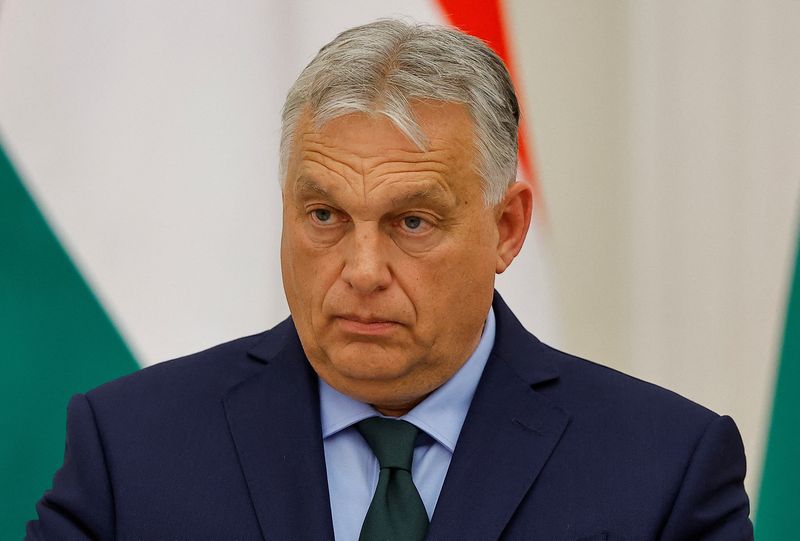By Gergely Szakacs and Krisztina Than
BUDAPEST (Reuters) - Hungary is aiming to lift economic growth into the 3% to 6% range next year, Prime Minister Viktor Orban said on Wednesday, as his cabinet grapples with a weaker-than-expected recovery from last year's inflation-led recession.
In power since 2010, the veteran nationalist has struggled to revive Hungary's economy from last year's downturn following a surge in inflation to more than 25% in the first quarter of 2023, the highest levels in the European Union.
The National Bank of Hungary, which cut its base rate by 25 basis points to 6.5% on Tuesday, reduced its economic growth forecasts - projecting it at 1% to 1.8% this year and 2.7% to 3.7% next year, both sharply below its previous estimates.
"We need to lift economic growth into the 3% to 6% range," Orban, who faces a parliamentary election in 2026, told a conference. "We can enter this range already next year, stay there in 2026 and target the high end of the band thereafter."
Orban said Hungary should pursue a disciplined fiscal policy but repeated an earlier pledge to double tax benefits for families and launch a substantial capital injection programme for small businesses in 2025.
Hungary's budget deficit has averaged nearly 7% of gross domestic product since the COVID-19 pandemic, and ratings agency Moody's (NYSE:MCO) projects the shortfall at 5.5% of GDP this year even after recent government attempts to curb the gap.
Orban said this month that a new ministry would take charge of the economy and state finances as he gears up for the nomination of a new central bank governor to succeed former ally Gyorgy Matolcsy.
Finance Minister Mihaly Varga has been widely tipped to succeed Matolcsy early next year, while Economy Minister Marton Nagy, a former central banker, could take charge of public finances under a merged ministry.
Zoltan Arokszallasi, an economist at Hungary's MBH Bank, said the main risk for investors from the leadership changes would be a potential dovish policy shift, with Hungary still running the EU's highest benchmark rate alongside Romania.

"The question is whether the orientation of monetary policy could be substantially looser next year," he said in a note.
"A rate cut whose scale could potentially take markets off guard could significantly weaken the forint, which could have a boomerang effect on inflation."